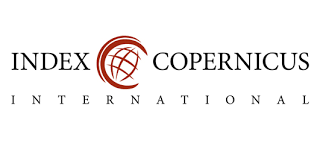Journal of Recent Developments in Diagnostic Pathology and Blood Research
Plagiarism Policy
Medpulse International Journal of Pathology states that Authors should ensure that submitted work is original and has not been published elsewhere in any language, and if the authors have used the work and/or words of others that this has been appropriately cited or quoted. Applicable copyright laws and conventions should be followed. Plagiarism in any form, including the touting of material contained in another paper (of the same authors or some other author) with cosmetic changes as a new paper; copying or paraphrasing substantial parts of another’s paper (without attribution), and claiming results from research conducted by others are among the numerous forms of plagiarism. In all its forms plagiarism constitutes unethical publishing behavior and is unacceptable.
Plagiarism occurs when someone steals and passes off the ideas or words of another as one's own or uses another's production without crediting the source. Duplicate publication, called self-plagiarism, occurs when an author reuses substantial parts of his or her own published work without providing the appropriate references. This can range from getting an identical paper published in multiple journals, to adding small amounts of new data to a previous paper.
Medpulse International Journal of Pathology editors will judge any case of plagiarism on its limits. If plagiarism is detected by an editorial board member, reviewer, or editor in any stage of the article process, before or after acceptance, we will alert the author(s) and ask them to rewrite the content or cite the appropriate references. If more than 30% of the paper is plagiarized, the article will be rejected, and the author will be notified. All the submitted manuscripts for publication are checked for plagiarism after submission and before starting the review process.
Multiple, Redundant or Concurrent Publication
An author should not in general publish manuscripts describing essentially the same research in more than one journal or primary publication. Submitting the same manuscript to more than one journal concurrently constitutes unethical publishing behaviour and is unacceptable. In general, an author should not submit for consideration to another journal a previously published paper, or the one under consideration with another journal, without the written consent of the two journals involved.
Acknowledgement of Sources
Proper acknowledgment of the work of others must always be given. Authors should cite publications that have been influential in determining the nature of the reported work. Information obtained privately, as in conversation, correspondence, or discussion with third parties, must not be used or reported without explicit, written, permission from the source.
Authorship of the Paper
Authorship should be limited to those who have made a significant contribution to the conception, design, execution, or interpretation of the reported study. All those who have made significant contributions should be listed as co-authors. Where there are others who have participated in certain substantive aspects of the research project, they should be acknowledged or listed as contributors. The corresponding author should ensure that all appropriate co-authors and no inappropriate co-authors are included on the paper, and that all co-authors have seen and approved the final version of the paper and have agreed to its submission for publication. If the work involves chemicals, procedures or equipment that have any unusual hazards inherent in their use, the author must clearly identify these in the manuscript.
Disclosure and Conflicts of Interest
All authors should disclose in their manuscript any financial or other substantive conflict of interest that might be construed to influence the results or interpretation of their manuscript. All sources of financial support for the project should be disclosed.
Fundamental errors in published works
When an author discovers a significant error or inaccuracy in his/her own published work, it is the author’s obligation to promptly notify the journal Editor-in-Chief/Editor or publisher and cooperate to retract or correct the paper. If the Editor-in-Chief/Editor or the publisher learns from a third party that a published work contains a significant error, it is the obligation of the author to promptly retract or correct the paper or provide evidence to the Editor-in-Chief/Editor of the correctness of the original paper





